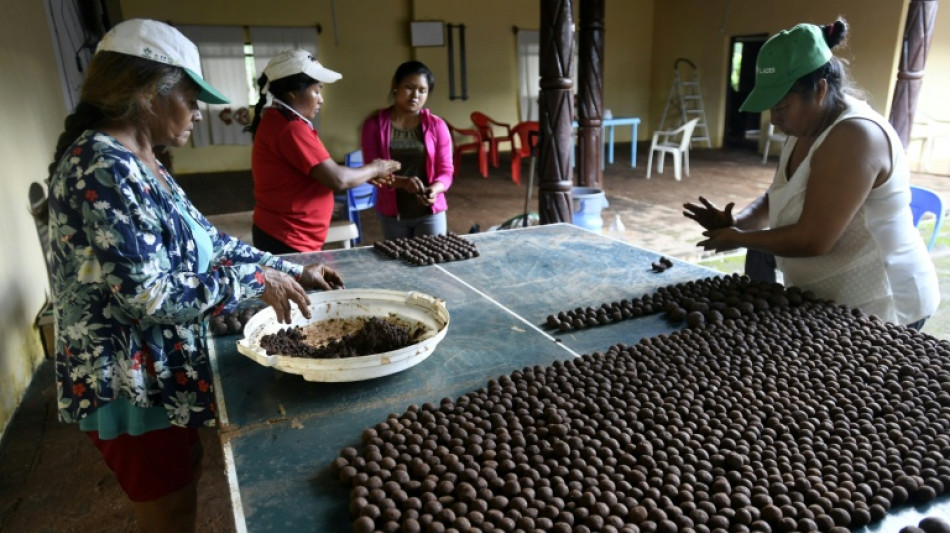
-
 Norway's McGrath tops first leg of Schladming slalom
Norway's McGrath tops first leg of Schladming slalom
-
Iraq PM candidate Maliki denounces Trump's 'blatant' interference

-
 Neil Young gifts music to Greenland residents for stress relief
Neil Young gifts music to Greenland residents for stress relief
-
Rubio upbeat on Venezuela cooperation but wields stick

-
 'No. 1 fan': Rapper Minaj backs Trump
'No. 1 fan': Rapper Minaj backs Trump
-
Fear in Sicilian town as vast landslide risks widening

-
 'Forced disappearance' probe opened against Colombian cycling star Herrera
'Forced disappearance' probe opened against Colombian cycling star Herrera
-
Seifert, Santner give New Zealand consolation T20 win over India

-
 King Charles III warns world 'going backwards' in climate fight
King Charles III warns world 'going backwards' in climate fight
-
Minneapolis activists track Trump's immigration enforcers

-
 Court orders Dutch to protect Caribbean island from climate change
Court orders Dutch to protect Caribbean island from climate change
-
Sterling agrees Chelsea exit after troubled spell

-
 Rules-based trade with US is 'over': Canada central bank head
Rules-based trade with US is 'over': Canada central bank head
-
Lucas Paqueta signs for Flamengo in record South American deal

-
 Holocaust survivor urges German MPs to tackle resurgent antisemitism
Holocaust survivor urges German MPs to tackle resurgent antisemitism
-
'Extraordinary' trove of ancient species found in China quarry

-
 Villa's Tielemans ruled out for up to 10 weeks
Villa's Tielemans ruled out for up to 10 weeks
-
Google unveils AI tool probing mysteries of human genome

-
 UK proposes to let websites refuse Google AI search
UK proposes to let websites refuse Google AI search
-
'I wanted to die': survivors recount Mozambique flood terror
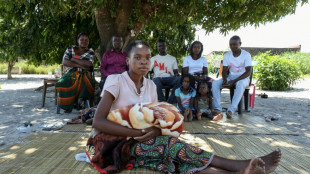
-
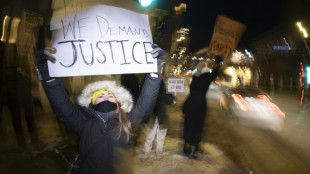 Trump issues fierce warning to Minneapolis mayor over immigration
Trump issues fierce warning to Minneapolis mayor over immigration
-
Anglican church's first female leader confirmed at London service

-
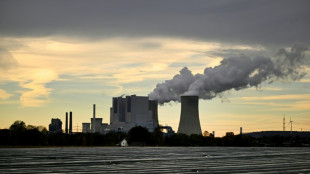 Germany cuts growth forecast as recovery slower than hoped
Germany cuts growth forecast as recovery slower than hoped
-
Amazon to cut 16,000 jobs worldwide

-
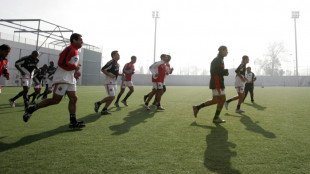 One dead, five injured in clashes between Colombia football fans
One dead, five injured in clashes between Colombia football fans
-
Dollar halts descent, gold keeps climbing before Fed update

-
 US YouTuber IShowSpeed gains Ghanaian nationality at end of Africa tour
US YouTuber IShowSpeed gains Ghanaian nationality at end of Africa tour
-
Sweden plans to ban mobile phones in schools

-
 Turkey football club faces probe over braids clip backing Syrian Kurds
Turkey football club faces probe over braids clip backing Syrian Kurds
-
Deutsche Bank offices searched in money laundering probe

-
 US embassy angers Danish veterans by removing flags
US embassy angers Danish veterans by removing flags
-
Netherlands 'insufficiently' protects Caribbean island from climate change: court

-
 Fury confirms April comeback fight against Makhmudov
Fury confirms April comeback fight against Makhmudov
-
Susan Sarandon to be honoured at Spain's top film awards

-
 Trump says 'time running out' as Iran rejects talks amid 'threats'
Trump says 'time running out' as Iran rejects talks amid 'threats'
-
Spain eyes full service on train tragedy line in 10 days

-
 Greenland dispute 'strategic wake-up call for all of Europe,' says Macron
Greenland dispute 'strategic wake-up call for all of Europe,' says Macron
-
'Intimidation and coercion': Iran pressuring families of killed protesters

-
 Europe urged to 'step up' on defence as Trump upends ties
Europe urged to 'step up' on defence as Trump upends ties
-
Sinner hails 'inspiration' Djokovic ahead of Australian Open blockbuster

-
 Dollar rebounds while gold climbs again before Fed update
Dollar rebounds while gold climbs again before Fed update
-
Aki a doubt for Ireland's Six Nations opener over disciplinary issue

-
 West Ham sign Fulham winger Traore
West Ham sign Fulham winger Traore
-
Relentless Sinner sets up Australian Open blockbuster with Djokovic

-
 Israel prepares to bury last Gaza hostage
Israel prepares to bury last Gaza hostage
-
Iran rejects talks with US amid military 'threats'

-
 Heart attack ends iconic French prop Atonio's career
Heart attack ends iconic French prop Atonio's career
-
SKorean chip giant SK hynix posts record operating profit for 2025

-
 Greenland's elite dogsled unit patrols desolate, icy Arctic
Greenland's elite dogsled unit patrols desolate, icy Arctic
-
Dutch tech giant ASML posts bumper profits, cuts jobs

| CMSC | -0.72% | 23.631 | $ | |
| RBGPF | 0% | 82.4 | $ | |
| RYCEF | -2.69% | 16.7 | $ | |
| NGG | 0.32% | 84.58 | $ | |
| AZN | -2.12% | 93.615 | $ | |
| RIO | 0.32% | 93.21 | $ | |
| BTI | -1.06% | 59.705 | $ | |
| SCS | 0.12% | 16.14 | $ | |
| BP | 0.07% | 37.645 | $ | |
| VOD | 0.31% | 14.545 | $ | |
| GSK | -1.9% | 49.855 | $ | |
| BCC | -1.91% | 80.205 | $ | |
| CMSD | -0.07% | 24.08 | $ | |
| JRI | -5.35% | 12.985 | $ | |
| RELX | -2.72% | 37.345 | $ | |
| BCE | -0.89% | 25.295 | $ |

Burn land or plant trees? Bolivian farmers weigh their options
Less than a year after the worst wildfires in Bolivia's history, farmers face a choice: continue starting blazes to clear land for agriculture, or plant trees to mitigate worsening droughts.
Around 10.7 million hectares (26.4 million acres) of dry tropical forest -- an area about the size of Portugal -- went up in smoke in Bolivia's eastern lowlands last year, according to the non-profit Bolivian Institute for Forest Research (IBIF).
While the fires received less attention than those across the border in Brazil, they killed at least four people, according to Bolivian authorities, and churned up record carbon pollution, the European Union's climate monitor said.
Attempts to carry out controlled burns were widely blamed for the infernos, which spread quickly in a region parched by a prolonged drought that scientists attribute to climate change.
Julia Ortiz, a sesame grower, knows all too well the hazards of the "chaqueos" (slash-and-burn agriculture) practiced by farmers big and small in Bolivia, particularly in the tropical grasslands of Chiquitania region.
Five years ago, she and her family spent an entire night trying to bring a fire they had themselves set under control.
"It can happen to anybody. Most of us live off farming and we must do burns," the 46-year-old Indigenous farmer said as she harvested her plants and stacked them in the sun to dry.
Last year's fires were of a much greater magnitude.
Carmen Pena, a 59-year-old resident of Santa Ana de Velasco, a village with dirt roads surrounded by forest and prairies, lost her banana and yuca crops.
"I don't know how we will survive because our food is running out," said Pena, who like most of Santa Ana's residents depends entirely on farming for an income.
- No machinery -
As green shoots start to sprout from fire-scarred earth, new fires are being lit in other areas as some farmers in Santa Ana continue to clear vegetation to grow crops.
Charred tree trunks on Ortiz's land point to a recent fire, even as the community embarks on a major tree-planting program.
According to an IBIF report, 63.6 percent of the land damaged by last year's fires was in forested areas, which it said pointed to "strong pressure to expand the boundaries of farmland."
David Cruz, a climate change specialist at the Universidad Mayor de San Andres in Bolivia's capital La Paz, accuses the state of abetting deforestation by pardoning people found responsible for starting fires, giving farmers extensions on deadlines to comply with environmental regulations and allowing them to burn large tracts of land.
Ortiz argues that fires are the only way farmers have of clearing land, in the absence of machinery to bury felled trees.
"If we had tractors, we would not need to do burns," she said.
But neither she nor her 1,700 fellow villagers can afford to rent a tractor, much less buy one, and those belonging to the municipality are all undergoing repairs.
"That's why we work as we do, running the risk that the fire would rage out of control. But it's the only choice we have," she argued.
- Tree-planting 'bombs' -
Faced with ongoing water shortages, which is causing crops to wither in the fields, a group of local women -- most of the men have left the village to find work -- have joined forces to try to replant trees using a method pioneered in Nepal.
Using their hands they knead "bombitas" (little spheres) of earth, which they fill with the seeds of indigenous trees.
Drones are then used to drop them over 500 hectares of deforested land, with funding from the Swiss NGO Swisscontact and Bolivia's own Flades foundation.
Some 250,000 "bombitas' will be airdropped starting in March.
Similar reforestation techniques have also been used in Peru and Brazil.
"Without forests, we'll have no water," Joaquin Sorioco, a farmer and forestry technician in Santa Ana said, expressing hope that the planting "will help (the soil) retain more humidity."
The Flades foundation hopes that last year's fires served as a wake-up call on the ravages of land-clearing practices.
"We went through very difficult times," the foundation's director Mario Rivera said. "But in a way it helped create awareness."
A.Kunz--VB

